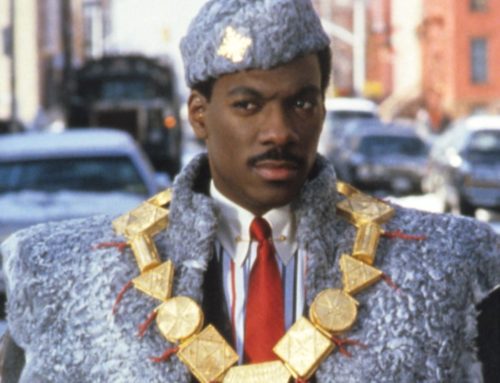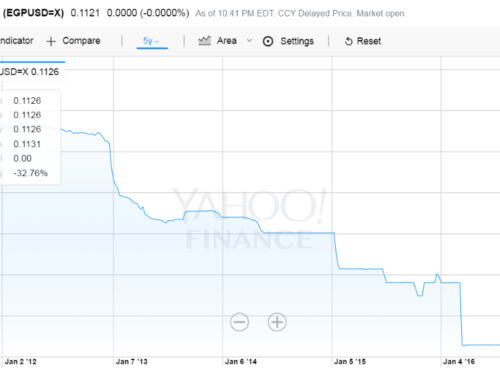My latest for Foreign Policy Transitions. It’s the abridged version of a 5-page article full of profanity.
The intractability of the problem in Egypt is caused by the presence of three, not two, parties to the current dispute.
The first of these parties is the protesters: those demanding a civil state and a proper constitution guaranteeing human rights for all, which the current draft does not. They are women and men, old and young, Christian and Muslim, poor and rich.
The second is the state, represented by the three-headed hydra of Morsi, Badie, and Shater. President Mohammed Morsi is the public face of the beast. Mohammed Badie is the Brotherhood’s Supreme Guide, whose words address the members of the Brotherhood. Kairat al-Shater is the organization’s most powerful man and its most prominent strategist. The panic of these three men introduced the third party into the current dispute.
This third party is the hordes of Muslim Brotherhood supporters. They are columns of men — almost always men — who are bussed into Cairo from outlying neighborhoods and cities for use as the Brotherhood’s foot soldiers. They serve as protesters at one moment, as hired guns at another. The reasons they so obediently follow orders is twofold: First, the Muslim Brotherhood indoctrination method requires absolute faith in the group’s hierarchical leadership. Second, those in charge are force-feeding them with hatred of the protesters, and they are correspondingly convinced that those who oppose Morsi’s decisions are in fact godless heathens who are also paid foreign agents who want to ruin Egypt and allow men to marry men. (There’s a very strange fixation on the matter of gay matrimony within Muslim Brotherhood propaganda I find very puzzling.)
And this is where the problem becomes intractable.
The political disagreement, between the protesters and the government, has been compounded by another: between the opposition protesters and the Muslim Brotherhood foot soldiers. For the latter, though, the conflict isn’t political — it’s religious and moral.
Having parallel disagreements on two different planes ensures the impossibility of reaching a middle ground.
I don’t think I’ve ever been as concerned for Egypt as I have this week. The only even remotely comparable moment that I can recall was the dawn of Thursday, February 3, 2011, the day following one of the worst battles of the Egyptian revolution. Broken and bandaged figures moved slowly through the cold morning mist in Tahrir Square, which still smelled like sulfur.
That morning, my heart sank. I wondered to myself how we got to that place. And wondered where we were going.
That’s very much how I feel this week. Usually, things appear worse than they actually are. Today, things are significantly worse than they appear.
On Wednesday, columns of angry men, belonging to the Brotherhood or supporting it, attacked protestors who had overnighted in the street, ransacking their peaceful encampment by the presidential palace. The attackers burned the protestors’ tents, robbed their few belongings, and beat up and injured hundreds, killing several. They kidnapped and tortured — tortured — several dozens of people, demanding from them bogus confessions that they were paid agents or members of Mubarak’s former party.
The protesters were objecting to President Morsi’s constitutional decree of November 22, which put him, the Islamist-dominated constituent assembly, and the draft constitution that assembly was supposed to produce, above judicial oversight.
It doesn’t end there. The men who tortured the protesters subsequently handed their victims to the national police, which arrested them. The victims, not the torturers: not a single one of the latter was apprehended. The victims were kept for two days, after which a judge recognized they were innocent and released them.
The sit-in endures, and on Friday a protest estimated at 1.5 million people returned to the square.
A Muslim Brotherhood ally, Salafi leader Hazem Abou Ismail, has publicly threatened to send his supporters to violently break the violence. He also sent his supporters to the “Media Production City,” a compound housing a number of satellite channels, with explicit threats of violence. He, too, was not apprehended.
The Muslim Brotherhood conflict management philosophy is two-pronged and seemingly incoherent.
First, Morsi and his entourage have pursued a strategy of “running out the clock,” under the assumption that time is on their side. The government remained silent for the first bloody 48 hours of the conflict, after which Morsi offered to hold a “national dialogue”. His proposal was shunned by nearly all opposition leaders, but he nevertheless went ahead with a meeting of sorts, issued a new constitutional declaration that resolved nothing, and insisted that the constitutional referendum be held on time.
The second approach, which appears inconsistent with the previous one, finds expression in nervous reactions that demand an immediate ending to the situation and believe in violence as a viable means. The short-temperedness of Morsi (or whoever is calling the shots behind him) goes against all the flowery promises of dialogue and national unity that he made that he made during his campaign and his early acceptance speeches.
For a while it seemed that the combination of ingredients was working. The government reinforced its moves with a Mubarakist propaganda policy that sought to dehumanize the Brotherhood’s political opponents, publicly exhorting its supporters to take action to “defend” the president’s legitimacy (hence paving the way for egregious acts of violence). The Brotherhood even resorted to stealing the names and images of victims within the ranks of the opposition, passing them off as their own [link in Arabic]. The chutzpah is befuddling.
But the reliance on the Muslim Brotherhood rank-and-file, fuelled by religious rage, screaming “O Islam” (something they could only have picked up in low-budget historical documentaries) is an extreme measure that one did not expect to see so early. Does it signify that, in its impatience, the government did not calculate the risk of letting an angry mob get a taste of blood? Like an evil genie, angry crowds might serve a short-term purpose but will very rapidly acquire a mind and will of their own. And the schism this is causing in the Egyptian society will very rapidly become irreversible.
Painting society as a pro-Islam vs. anti-Islam binary choice isn’t a political dispute — it’s a civil one. Because there isn’t a region, a street, a family where people don’t disagree about politics; if this kitchen table conversation is transformed into one about faith, then we’re lost. And the damage will reach all the way to the deepest threads of the society that we love to compare — mostly thanks to a Christian minority that throws in some diversity — to a complex, tightly woven tapestry.
This is a fabric that the Brotherhood is now working overtime to unravel. Is this deliberate or is it a terrible miscalculation? The latest government fiasco (decreeing new taxes and then rescinding them hours later) suggests that there is remarkably little thought going into critical decisions.
Morsi is probably not the only decision-maker. The hydra’s two other heads have a mind of their own — and they are not shy about expressing it, either. (Both Khairat Al Shater and Mohamed Badie held press conferences justifying the government’s response to the clashes, even though they have no official government positions whatsoever.) All this makes me feel that pessimism is justified.
The ball is now in the president’s six hands. And this does not bode well.
Mohamed blogs at http://eldahshan.com and tweets at @eldahshan.




